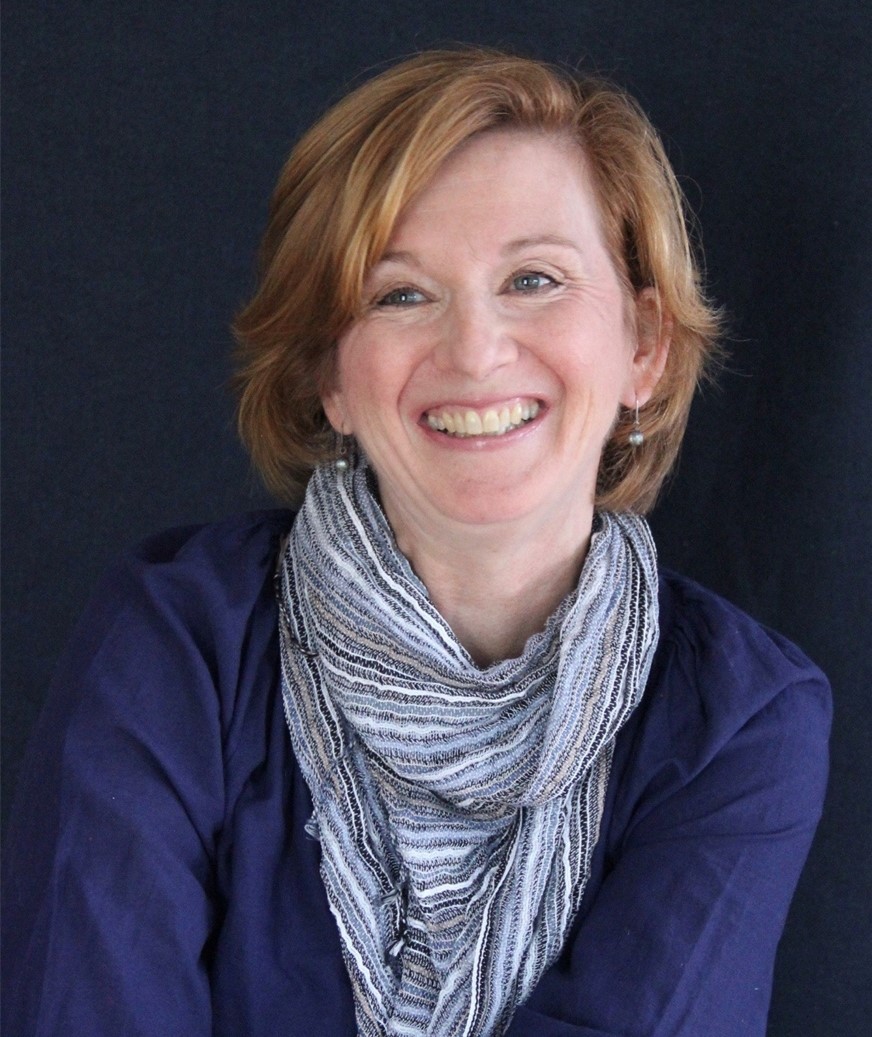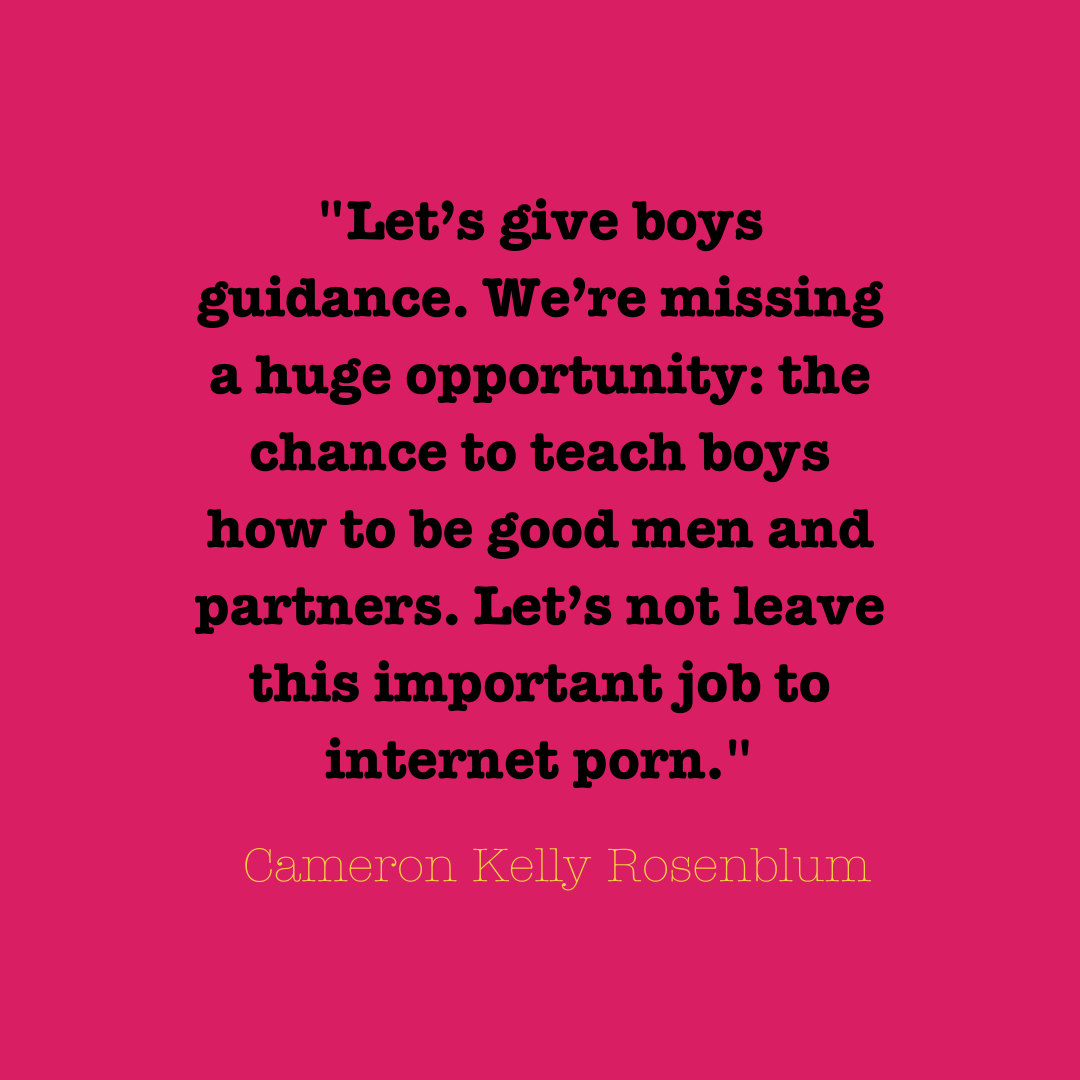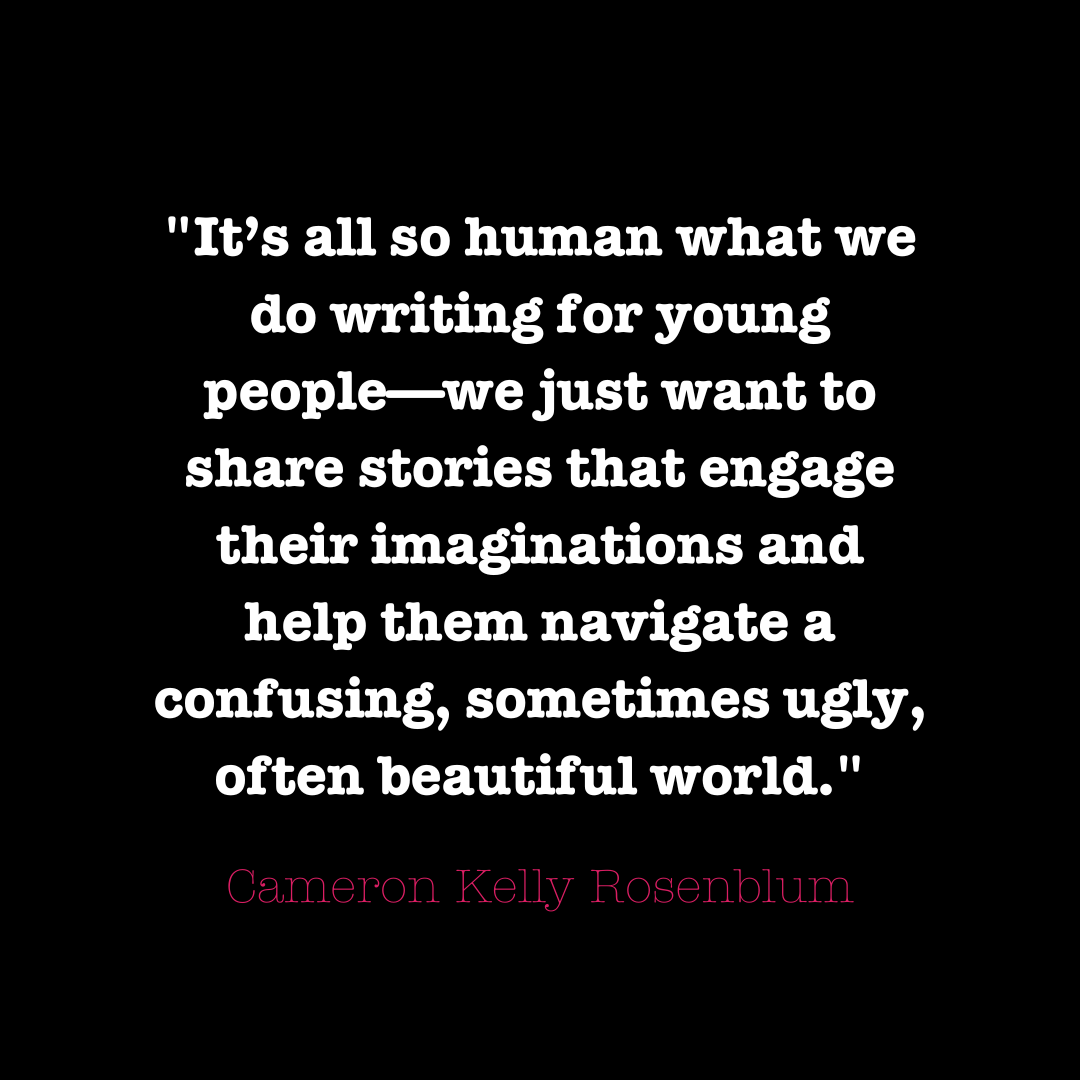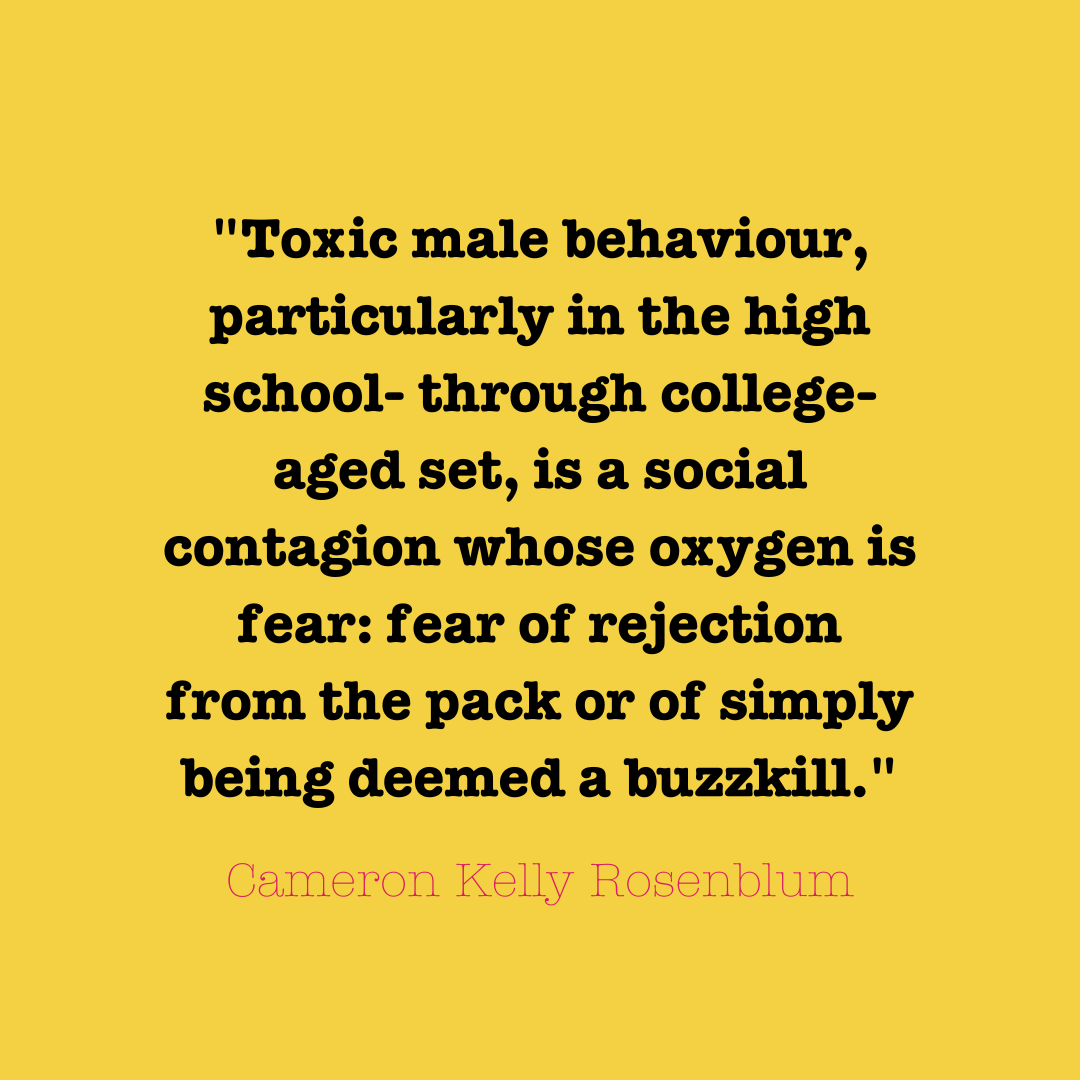Schools please note: due to the summer holidays we will automatically hold all school books and furniture orders due between Wednesday 16 July and Monday 1 September 2025. Delivery will resume from Tuesday 2 September 2025. If your school remains open for deliveries during the summer and you would like to receive your order during this time, please get in touch in advance by calling 0121 666 6646 or emailing hello@peters.co.uk.
For help, advice and telephone ordering call our team on 0121 666 6646
Are you sure you wish to delete this basket?()
This action cannot be undone.
Sorry, something went wrong
Please report the problem here.
Toxic masculinity and rape culture in schools: Cameron Kelly Rosenblum

March 14th 2023
Increasing numbers of teachers are struggling to cope with the devastating impact of toxic masculinity and rape culture in schools, according to new research. Toxic masculinity, the concept of 'manliness' defined by a set of harmful behaviours that perpetuate misogyny, homophobia and aggression, has become a buzzword thanks to the rise in social media use and controversial influencers like Andrew Tate.
Research commissioned by UK Feminista and the National Education Union found that sexual harassment, sexist language and gender stereotyping are prevalent in schools, with 58% of female students at mixed-sex schools experiencing or witnessing some form of sexual harassment. While 64% of teachers in mixed-sex secondary schools hear sexist language in school on at least a weekly basis, just one in five (20%) received training in recognising and tackling sexism as part of their Initial Teacher Education.
School-based sexual harassment, which includes unwanted sexual comments or sexual touching, has now become 'commonplace', as represented in Channel 4's February 2023 drama series, Consent. It is not just limited to students: female teachers have recalled instances of boys making sex noises, whistling at them whilst they are trying to teach, and even rubbing their crotch against them. Those who experience abuse are worried their concerns will not be taken seriously, and have even been punished for retaliating, leading to calls for the Department for Education (DfE) to make tackling sexism and sexual harassment in schools an urgent policy priority.
One of the biggest proponents of toxic masculinity is claimed to be Andrew Tate, a British-American TikTok star and businessman who was arrested in December 2022 on suspicion of rape and human trafficking. Tate, who has openly admitted to breaking a woman's jaw and has previously been banned from Instagram, Facebook, TikTok and YouTube for violating community guidelines with his violent video content, has garnered a legion of male fans, many of whom are teenage boys. A poll by the advocacy group HOPE Not Hate found that eight in ten teenage boys have consumed Tate's content, and amongst the 45% of males aged 16-24 who hold a positive opinion of him, there is a belief that he "gives good advice" and "wants men to be real men".
Many teachers now believe that a zero-tolerance policy is needed in schools to protect girls and female teachers from toxic masculinity and rape culture, which is also a widespread issue in countries including the USA. In her latest YA novel, The Sharp Edge of Silence, American author Cameron Kelly Rosenblum portrays the dangers of misogyny and sexual assault at an elite New England boarding school. Below, she shares her take on this worrying trend.
Guest blog by author Cameron Kelly Rosenblum
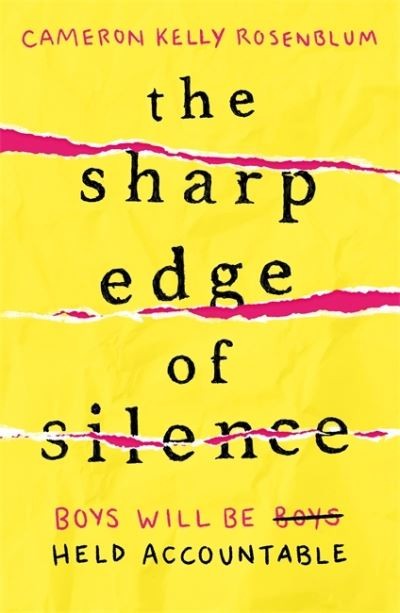 |
A shocking new YA novelThe Sharp Edge of SilenceTold in alternating perspectives, this gripping, fast-paced narrative is perfect for readers looking for their next empowering #MeToo read. Tackling the contagious nature of toxic masculinity, this thought-provoking story explores secret societies, athletic rivalries and pranks taken too far. After a sexual assault becomes public and implicates one of the top-tier athletes on campus, nothing will be the same. |
Reducing sexual assaults amongst teens
From the beginning, I wanted to examine rape culture and toxic masculinity through a nuanced lens. It is a no-brainer to vilify characters engaging in toxic male behaviour. Quinn’s sexual assault is the core of the story, so of course there’s no grey area with her rapist. He’s vile and needs to be punished. But what about the guys around him, most of whom would not cross a line into violence like he does? Technically they don’t know he’s a rapist, right? I wonder about those boys in real life—you know, the stereotypical frat boys and locker room guys. They can’t all be evil misogynists. And yet, even in the post-#MeToo world of the 2020s, male toxicity is a thing. If we want to reduce sexual assaults among teens, we better figure out why.
 A 2023 poll found that 45% of teenage boys surveyed have a positive view of Andrew Tate, and eight in ten have watched his content. Image: Rich Smith
A 2023 poll found that 45% of teenage boys surveyed have a positive view of Andrew Tate, and eight in ten have watched his content. Image: Rich Smith
Toxic male behaviour is a social contagion
While researching I came to realise that toxic male behaviour, particularly in the high school- through college-aged set, is a social contagion whose oxygen is fear: fear of rejection from the pack or of simply being deemed a buzzkill. Fuelled by the desire for acceptance by the alphas so they don’t eat you alive, boys will say outrageous things to secure a place in the hierarchy. Things they don’t believe and know full well shouldn’t be said (read Peggy Orenstein’s 2020 bestseller Boys & Sex for eye-widening interviews).
This social insecurity hits precisely when their sex drive is skyrocketing and when the pleasure centre of their brain overpowers the reasoning centre. Of course, horrible things can and do happen if all this is unmitigated. In the book, Max’s ascent from a social nobody to part of the elite alpha wolfpack is designed to reflect this. His deep need for acceptance clouds his judgment, and before he knows it he’s in the heart of the malignant all-male secret society. Ethically compromised, he tries to “take the best and leave the rest,” but he’s in too deep.
All that’s necessary to deflate the culture would be for a few boys to speak up. But they play along with the misogyny, un-curious how it may impact the girls in their lives. It’s the un-curiosity that I think is most lethal in real life.
Teach boys how to be good men and partners
We need to frame toxic masculinity as a damaging social contagion and expressly teach young men to recognise and reject it. Participation is not evidence of strength but of cowardice. Parents, feminists, schools all need to accept that adolescent boys and young men, abruptly bathed in hormones, have quite a job figuring out how to manage their biological reality. We can’t wish away the fact that testosterone is a powerful hormone, (read Harvard biologist Dr. Carole Hooven’s 2021 Testosterone: The Story of the Hormone that Dominates and Divides us for current research), but it’s also not an excuse, ever.
Let’s give boys guidance. We’re missing a huge opportunity: the chance to teach boys how to be good men and partners. Let’s not leave this important job to internet porn.
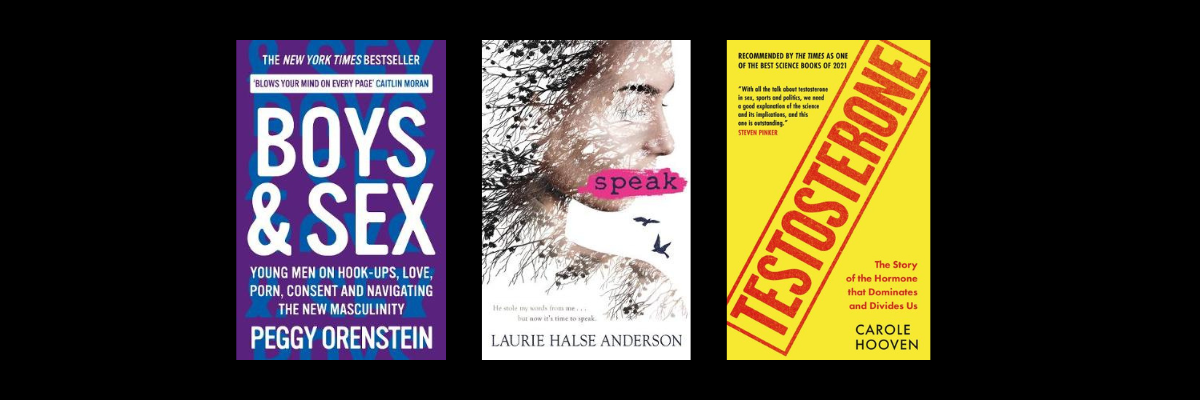 Books that Cameron recommends for further reading include Boys & Sex, Speak and Testosterone
Books that Cameron recommends for further reading include Boys & Sex, Speak and Testosterone
Allow readers to consider complex topics from a distance
One of the best things about books is they allow readers to wrestle with big concepts from a safe distance. Books provide a place for young people to examine difficult topics and project themselves into complicated situations without risk. They can flip ideas around in their minds, kick the tires, discuss with friends or teachers. When it comes to sex and first love, I doubt honest discourse comes easily to kids, who may posture to feign confidence or avoid it all together. Parents I know struggle wading into these topics, too.
Quinn, Max, and Charlotte’s narratives offer conversations from a comfortable distance, lessening emotional vulnerability. What would you do if you were ______? Why does Colin act like that? Why doesn’t Charlotte just talk with her boyfriend? If readers encounter such scenarios through fiction, they can be more aware, sensitive, and proactive in their own choices. My keen hope is for Quinn’s story to helps someone make sense of the devastating emotions that follow an assault. I would have loved having that in my own teen years.
Books help young people to navigate a confusing world
Reading promotes critical thinking and discussion. When a book is emotionally resonant for any reason at all, a librarian sees its impact immediately: The hush that blankets the room as a passage is read, the stillness of faces, and the inevitable eruption of conversation. I always want to call an author after I have that experience to tell them they nailed a perfect landing. It’s all so human what we do writing for young people—we just want to share stories that engage their imaginations and help them navigate a confusing, sometimes ugly, often beautiful world. I hope The Sharp Edge of Silence does that.
There is always more to say
We can underestimate the ability of young people to see nuance. I’ve heard seven-year-olds thoughtfully develop guidelines about when it’s okay to break rules after reading about an obedient boy who lies to save his sister from a monstrous bearskin rug. And nine-year-olds debate Edmund’s betrayal in The Lion, the Witch and the Wardrobe.
Given hypotheticals through great storytelling, kids pick up on subtleties quite readily. No need to spell out who’s right and who’s wrong. My job is to help them think and decide for themselves. It’s the same with my writing. I wasn’t sure I should dare attempt to write about sexual assault in the long shadow of Laurie Halse Anderson’s masterpiece, Speak. But then I decided there was more to say. Ever more to say.
More fiction books about toxic masculinity and rape culture
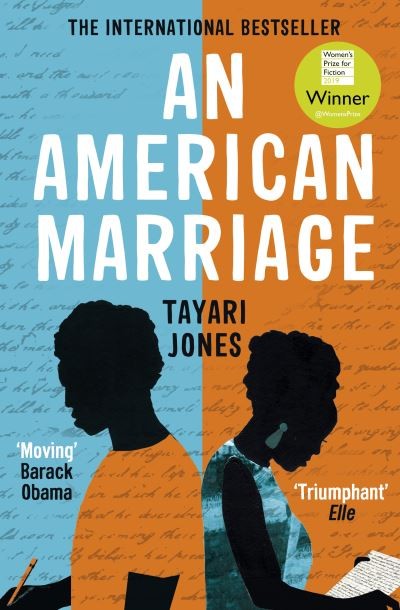 |
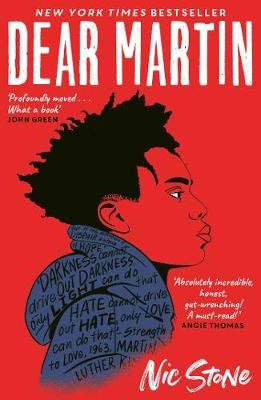 |
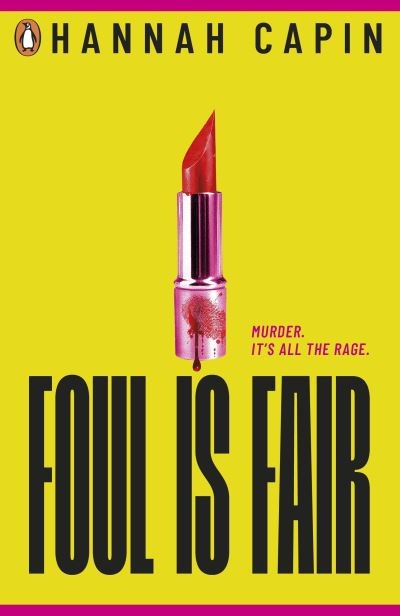 |
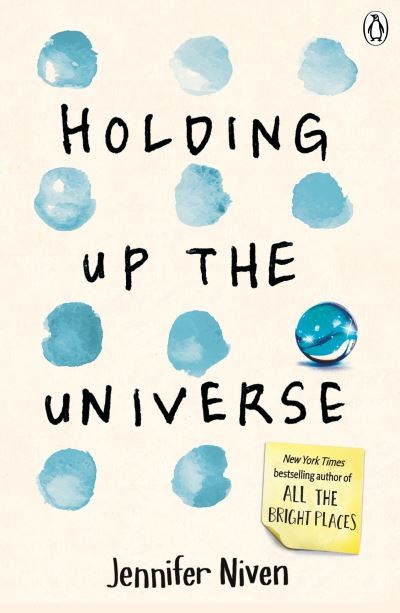 |
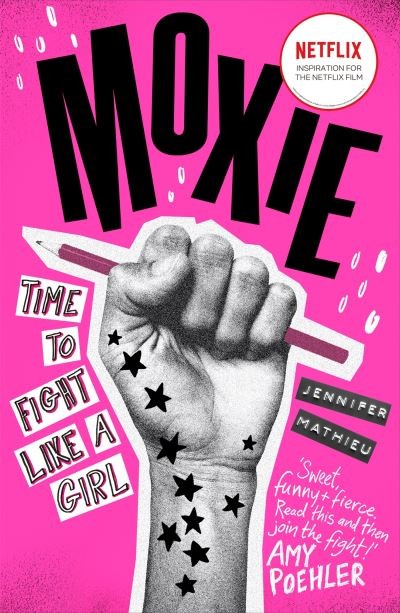 |
 |







